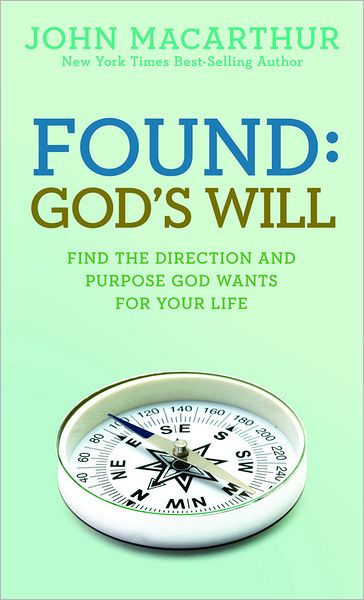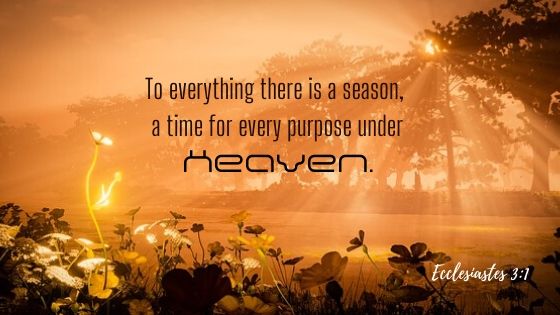Ecclesiastes 3 is unarguably one of the most quoted Bible passages not only by Christians but also non-Christians, especially when talking about the meaning of life. Now, why is that? What is this passage all about? What is Solomon, the author, trying to tell us about life?
An Introduction to the Book of Ecclesiastes
Some argue that the book of Ecclesiastes may not have been written by Solomon but by somebody else under his instruction. However, there are powerful arguments that the author was Solomon himself.
The author calls himself “the son of David, king in Jerusalem” in Ecclesiastes 1:1, 12. And Solomon was the best qualified Davidic descendant for the quest in this book as he was the wisest man who ever taught in Jerusalem (Ecclesiastes 1:16; 1 Kings 4:29-30).
The description of Qoheleth’s exploration of pleasure (Ecclesiastes 2:1-3), impressive accomplishments (Ecclesiastes 2:4-6), and unparalleled wealth (Ecclesiastes 2:7-10) were fulfilled only by King Solomon.
Note 1: The Hebrew title Qoheleth is a rare term, found only in this book (Ecclesiastes 1:1, 2, 12; 7:27; 12:8-10). It comes from the word qahal, “to convoke an assembly, to assemble.” Thus, it means “one who addresses an assembly, a preacher.”
The Septuagint used the Greek word Ekklesiastes as its title for this book. Derived from the word ekklesia, “assembly, congregation, church,” it simply means “preacher “ The Latin Ecclesiastes means “speaker before an assembly.”
Ecclesiastes 1:1 in Hebrew reads, “The words of Qoheleth, the son of David, king in Jerusalem.”
The book of Ecclesiastes was probably written late in Solomon’s life, about 935 B.C. If this is so, the great glory that Solomon ushered in early in his reign was already beginning to fade; and the disruption of Israel into two kingdoms would soon take place.
Jewish tradition asserts that Solomon wrote Song of Solomon in his youthful years, Proverbs in his middle years, and Ecclesiastes in his latter years. There are no references to historical events than to personal aspects of Qoheleth’s life and the location was Jerusalem, the seat of Israel’s rule and authority.
A Time for Everything
In Ecclesiastes 3:1-8, Solomon affirms in fourteen paired statements that God is at work in our individual lives, seeking to accomplish His will. It must be noted that all of these events come from God, and they are good in their time.
A Time to be Born and a Time to Die
Ecclesiastes 3:2a
Things like abortion, birth control, mercy killing (euthanasia), and surrogate parenthood may give the impression that humans control birth and death, but Solomon said otherwise.
Birth and death are not human accidents; they are divine appointments, for God is in control. We may foolishly hasten death, but we cannot prevent it when our time comes, unless God wills it, such as in the case of King Hezekiah in Isaiah 38:1-8.

A Time to Plant and a Time to Harvest.
Ecclesiastes 3:2b
Farmers may plow and sow, but only God can give the increase (Psalm 65:9-13). “Harvest” translates a word that may refer either to reaping or pulling up unproductive plants.
A successful farmer knows that nature works for him only if he works with nature. This is also the secret of a successful life: Learn God’s principles and cooperate with them.
Casting Away Stones and Gathering Them
Ecclesiastes 3:5
Israel is indeed a rocky land, and farmers must clear their fields before they can plow and plant. To hurt an enemy, you would fill the enemy’s field with stones (2 Kings 3:19, 25). People also gathered stones for building walls and houses.
Whether stones are good or bad depends on how they are used. If your enemy fills your land with rocks, don’t throw them back. Instead, build something out of them!
A Time to Tear and a Time to Sew
Ecclesiastes 3:7
This tearing and mending probably refer to the Jewish practice of tearing one’s garments during a time of grief or repentance (2 Samuel 13:31; Ezra 9:5).
God expects us to sorrow and grieve during bereavement but not like unbelievers who have no hope (1 Thessalonians 4:13-18). At times we must get out of the needle and thread and start mending.
A Time to Love and a Time to Hate
Ecclesiastes 3:8
God’s people are expected to love others, even the unlovable, following Jesus’ example. But are they allowed to hate? The fact that the next phrase mentions “war and peace” suggests that Solomon may have had the nation primarily in mind.
However, believers are expected to hate some things such as covetousness (Exodus 18:21), evil (Psalm 97:10), the deeds of the Nicolaitans (Revelation 2:6), the doctrines of Balaam and sexual immorality (Revelation 2:14), and the seven things that God hates in Proverbs 6:16-19.
The inference in Ecclesiastes 3:1-8 is plain: If we cooperate with God’s timing, life will not be meaningless. Rather, everything will be “beautiful for its own time” (Ecclesiastes 3:11), even the most difficult experiences of life. Life is something like a doctor’s prescription. Taken alone, the ingredients might kill you, but properly blended, they bring healing.
Making Sense of God’s Gift: Life
Ecclesiastes 3:10
Given the travail that we experience from day to day, life may seem like a strange gift, but it is God’s gift just the same. We exercise ourselves in trying to explain life’s enigmas, but we don’t always succeed.
If we believingly accept life as a gift and thank God for it, we will have a better attitude toward the burdens that come our way. If we grudgingly accept life as a burden, then we will miss the gifts that come our way. As Dr. Warren Wiersbe said, “Outlooks help to determine the outcome.”

Understanding God’s Plan
Ecclesiastes 3:11
God created man (us) in His own image and has given him dominion over all other creatures (Genesis 1:26-28). Humans, therefore, are different from the rest of creation. God “has planted eternity in the human heart” and we are linked to heaven.
Don Richardson, a well-known missionary and author, used the phrase “eternity in their hearts” to describe the phenomenon of redemptive analogies in almost all aboriginal cultures. Almost every culture has customs, traditions, or ways of thinking that reflect basic biblical truth, and these can be used by missionaries to explain the gospel
The bottom line here is, God accomplishes His purposes in His time, but only when we enter eternity will we begin to comprehend His total plan.
Contentment and Enjoyment
Ecclesiastes 3:12-13
The Teacher hinted at contentment in Ecclesiastes 2:24 and was careful to say that this enjoyment of life was God’s gift (see Ecclesiastes 5:19; 6:2 and 1 Timothy 6:17). Solomon is not encouraging pagan hedonism but rather the practice of enjoying God’s gifts as the fruit of one’s labor, no matter how difficult life may be.
Life appears to be transitory, but whatever God does is forever. So, when we live for Him and let Him have His way, life is meaningful and manageable. Instead of complaining about what we don’t have, let’s enjoy what we do have and thank God for it.
Fear God and Submit to Him
Ecclesiastes 3:14
The proper attitude for us is the fear of the Lord, which is not the cringing of a slave before a cruel master but the submission of an obedient child to a loving parent (see Ecclesiastes 5:7; 7:18, 8:12-13; 12:13). If we fear God, we need not fear anything else, for He is in control.
Proverbs 9:10 also says, “The fear of the Lord is the beginning of wisdom, and the knowledge of the Holy One is understanding.”
God Controls the Cycle of Life
Ecclesiastes 3:15
This verse helps us recall Ecclesiastes 1:9-11 and gives us the assurance that God controls the cycle of life. The past seems to repeat itself so that “nothing under the sun is truly new” (Ecclesiastes 1:9), but God can break into history and do what He pleases (see Isaiah 46:10).
God’s many miracles are evidence that the cycle is a pattern and not a prison. God’s own Son broke into human history through a miraculous birth. He then died on a cross and rose again, thus conquering the life-death cycle.
The Common Fate of Man and Animals
Ecclesiastes 3:18-21
God will judge when history has run its course, but God is judging now.
In the experiences of life, God is testing humans (“proves to people”). (The Hebrew word means “to sift, to winnow.”) God is revealing what humans are really like; He is sifting them.
For example, when someone leaves God out of his or her life, that person becomes like an animal. (See Psalm 32:9; Proverbs 7:21-23; 2 Peter 2:19-20.) He or she lives like a beast and dies like a beast.
As Solomon thought of an animal dying and its body decomposing, he realized that the same happens to the human body. We sensed that he hoped there was a different destiny between humans and animals, yet in his thinking “under the sun,” he saw no real reason to believe it.
Enjoying Life Everyday
Ecclesiastes 3:22
Is there a way for man to know what will happen after him? Nothing, because death ends it all, and therefore ultimately his life has no more significance or meaning than the life of an animal.
So in ending, Solomon calls us to accept life, enjoy it a day at a time and be satisfied. We must never be satisfied with ourselves, but we must always be satisfied with what God gives to us in this life.
If we grow in character and godliness and live by faith, then we will be able to say with Paul, “Not that I speak in regard to need, for I have learned in whatever state I am, to be content” (Philippians 4:11).
Vanity: The Key Theme of Ecclesiastes
The key theme of Ecclesiastes is vanity. It reports the results of a diligent quest for purpose, meaning, and satisfaction in human life. The Preacher poignantly sees the emptiness and futility of power, popularity, prestige, and pleasure apart from God.
The word vanity appears thirty-seven times to express the many things that cannot be understood about life. All earthly goals and ambitions, when pursued as ends in themselves, lead to dissatisfaction and frustration. Life “under the sun” (used twenty-nine times) seems to be filled with inequities, uncertainties changes in fortune, and violations of justice.
But Ecclesiastes does not give us an answer to atheism or skepticism; God is referred to throughout. In fact, it claims that the search for man’s summum bonum must end in God. Satisfaction in life can be found only by looking beyond this world. Contentment and joy are found only in God.
Note 2: Summum bonum is a Latin expression meaning “the highest good,” which was introduced by the Roman philosopher Cicero, to correspond to the Idea of the Good in ancient Greek philosophy.
Conclusion
Although the Preacher concluded that time is short and there is no eternity on earth, He connected beauty and eternity as ideas implanted in the human personality by God. Obviously, beauty in God’s creation or in our own creative efforts awakens in us an awareness of eternity.
When King Solomon wrote the balance and harmony of all the various aspects of human existence, he concluded, “He (God) has made everything beautiful in its time. The word translated “beautiful” in Ecclesiastes 3:11 is not the term translated “good” in Genesis (Genesis 1:12, 25, 31).
The word in Ecclesiastes is much closer to the English word “beautiful” with its emphasis on visible attractiveness rather than internal harmony.
Beauty gives us a glimpse of what endures forever – maybe as though it were a pale reflection of some aspect of God’s perfect beauty. A sunset, a scene of mountain grandeur, the ocean at peace or in a frenzy, a symphony, a painting, a poem or an innocent child can stab the human heart with a certainty that God – a personal God who embodies perfect beauty – is the source of all this.
References:
New King James Version Study Bible edited by John Hagee
The New Living Transformation Study Bible edited Dr. Warren Wiersbe
Recommended Resource: Found: God’s Will by John MacArthur
 Does God have a path for me? How do I make the right choices in life? Why is it so difficult to uncover God’s will?
Does God have a path for me? How do I make the right choices in life? Why is it so difficult to uncover God’s will?
Trusted pastor and teacher John MacArthur answers these vital questions and more.
Offering assurance that God does have a plan for your life and that He wants you to know it, MacArthur examines six powerful biblical principles that will give you direction, fill you with purpose, and give you the confidence to live out His plan for you.
When those five fundamentals are operating, we’re free to exercise number six – and do whatever we want!

